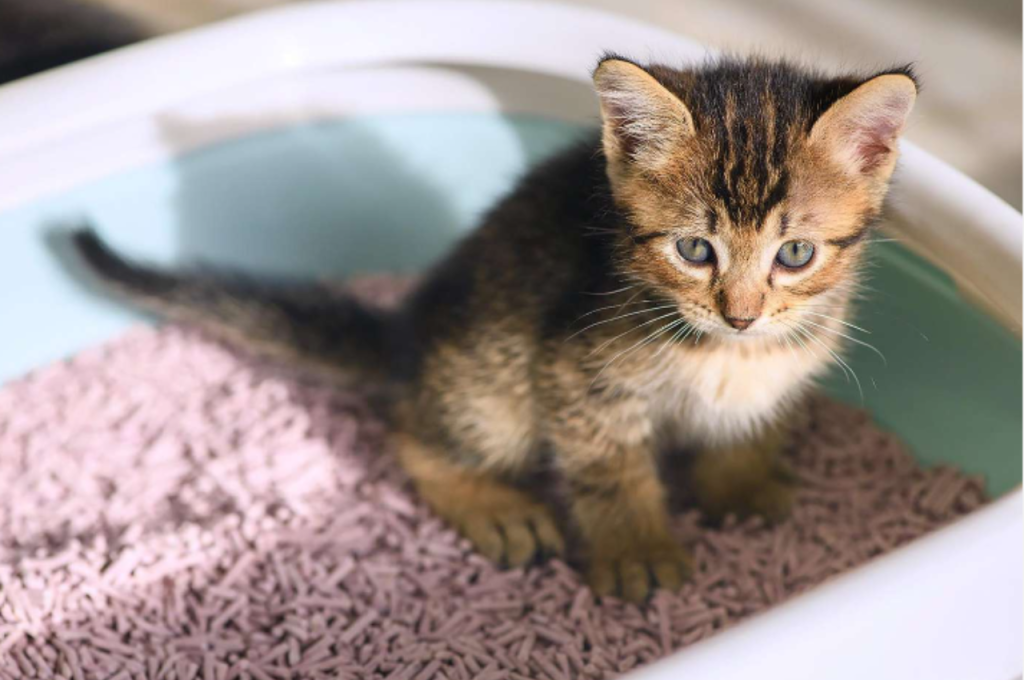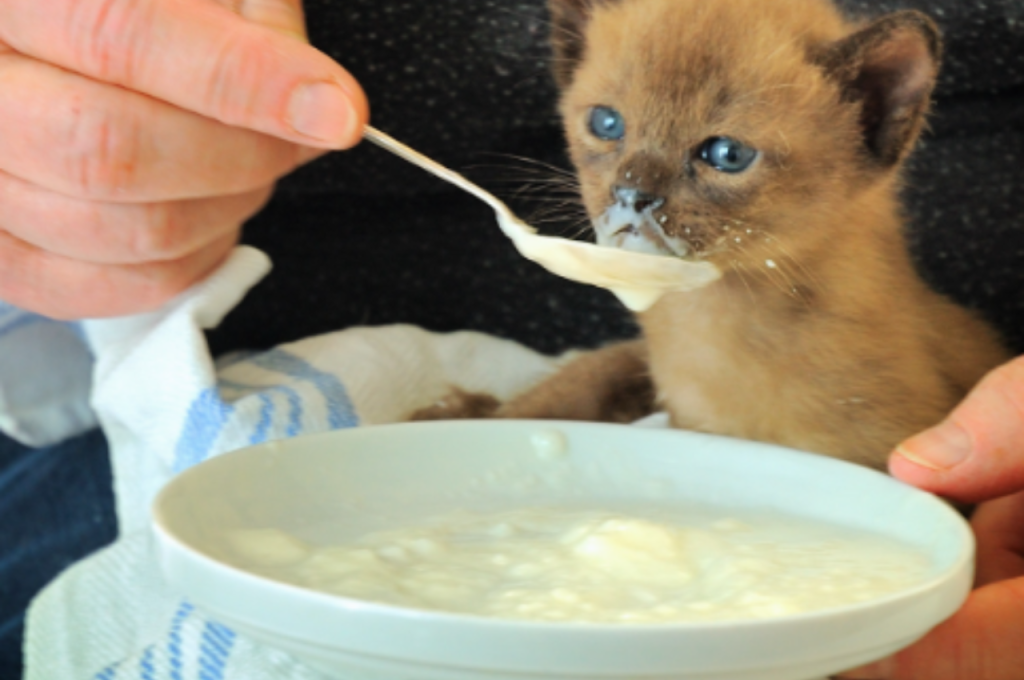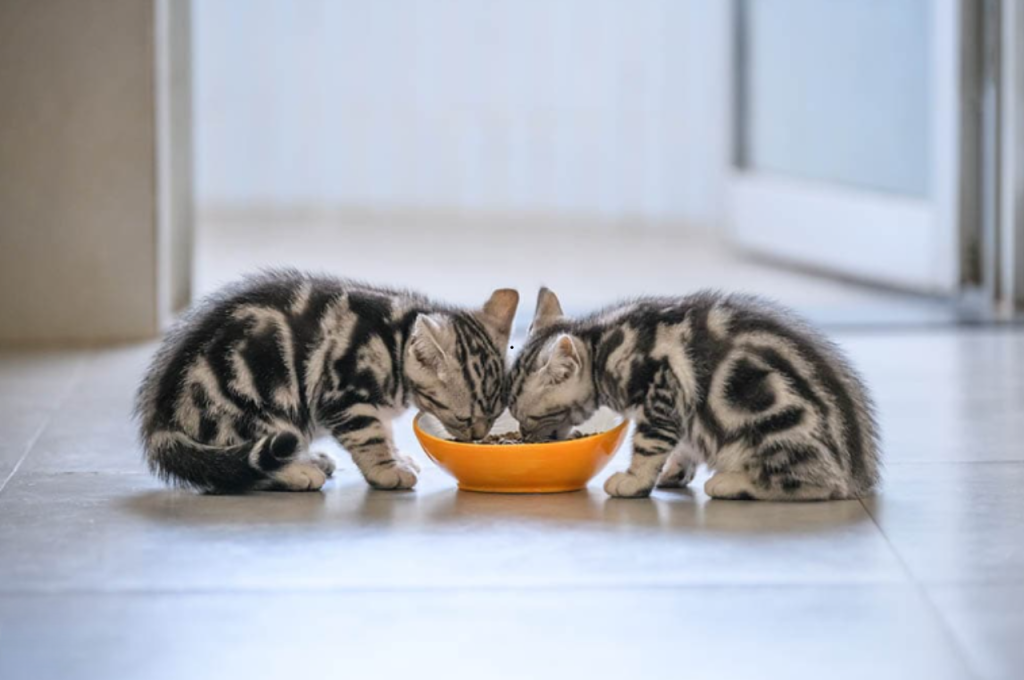Feed a kitten with diarrhea a bland diet of boiled chicken and rice to help ease their stomach. You can also give them a mixture of pumpkin and plain yogurt to aid digestion.
Dealing with a kitten suffering from diarrhea can be concerning for any pet owner. It is essential to provide the right food to help soothe their upset stomach and restore their digestive health. By offering a simple diet of boiled chicken and rice, along with a bit of pumpkin and plain yogurt, you can support your kitten’s recovery process. In this blog post, we will discuss in detail the best foods to feed a kitten with diarrhea and provide helpful tips to ensure your furry friend gets back to their healthy, playful self in no time.
Introduction to Kitten Diarrhea
Kitten diarrhea can be a common issue that pet owners may encounter. It is essential to understand the causes and symptoms to provide the appropriate care for your furry friend.

Common Causes
- Diet changes: Sudden changes in diet can upset a kitten’s stomach.
- Bacterial or viral infections: Pathogens can lead to gastrointestinal upset.
- Parasites: Worms and other parasites can cause diarrhea in kittens.
Symptoms to Watch for
- Dehydration: Check for signs like dry gums and lethargy.
- Bloody stool: The presence of blood in the stool indicates a more serious issue.
- Loss of appetite: Kitten may refuse to eat due to digestive discomfort.
Importance of Diet in Diarrhea Management
When it comes to managing a kitten with diarrhea, the importance of diet cannot be overstated. Proper nutrition plays a crucial role in supporting the kitten’s digestive system and aiding in the recovery process. By understanding the role of nutrition and how food affects digestive health, you can make informed decisions about what to feed a kitten with diarrhea.
Role of Nutrition
Nutrition is vital in providing the necessary nutrients to support the kitten’s overall health and well-being. A well-balanced diet can help strengthen the immune system and improve digestive function, essential for managing diarrhea in kittens. By focusing on the right nutrients, you can aid in the kitten’s recovery and overall growth.
How Food Affects Digestive Health
The food a kitten consumes directly impacts its digestive health. Certain foods can exacerbate diarrhea, while others can help alleviate symptoms and promote healing. A diet that is easily digestible and rich in high-quality proteins, essential fatty acids, and digestible carbohydrates can aid in restoring the kitten’s digestive balance. It’s important to choose a diet that is gentle on the stomach and supports the kitten’s nutritional needs during this sensitive time.
Immediate Steps Before Changing Diet
Before changing a kitten’s diet, it’s important to take immediate steps if they have diarrhea. First, make sure they are hydrated and consult with a veterinarian for dietary recommendations. Gradually introduce new foods and monitor their digestive health.
Hydration is Key
When dealing with a kitten with diarrhea, one of the immediate steps you should take before changing its diet is to ensure proper hydration. Diarrhea can quickly lead to dehydration, especially in young kittens, so it’s crucial to keep them hydrated throughout the process.
To maintain hydration, provide your kitten with access to fresh water at all times. You can also offer them a specially formulated electrolyte solution designed for pets, which can help replace essential fluids and electrolytes lost due to diarrhea. Additionally, consider offering your kitten wet food instead of dry kibble during this time. Wet food has a higher moisture content, which can aid in hydration. It’s essential to monitor your kitten’s water intake and ensure they are drinking enough to stay hydrated.
When to Consult a Vet
While you can try managing your kitten’s diarrhea at home, it’s crucial to know when it’s time to consult a vet. Some instances where veterinary assistance is necessary include:
- If your kitten’s diarrhea persists for more than 24 hours or worsens
- If your kitten shows signs of dehydration, such as dry gums, lethargy, or sunken eyes
- If your kitten has other accompanying symptoms like vomiting, loss of appetite, or abdominal pain
- If your kitten is very young or has a pre-existing health condition
A veterinarian can provide a proper diagnosis, recommend appropriate treatment, and ensure your kitten receives the necessary care to recover quickly.
Remember, it’s always better to be safe than sorry when it comes to your kitten’s health, so don’t hesitate to reach out to a veterinary professional if you have any concerns.
Soothing Foods for Kittens with Diarrhea
If your kitten is experiencing diarrhea, it’s important to provide them with soothing foods that are gentle on their sensitive stomachs. These foods can help alleviate symptoms and promote a healthy digestive system. Here are two excellent options that you can try:

Boiled Chicken: A Gentle Option
Boiled chicken is a great choice for kittens with diarrhea because it is easily digestible and gentle on their stomachs. This lean protein source provides essential nutrients while being easy on their digestive system. To prepare boiled chicken for your kitten, follow these simple steps:
- Start by boiling boneless, skinless chicken breasts in water until they are fully cooked.
- Allow the chicken to cool down before shredding it into small, easily manageable pieces.
- Feed the boiled chicken to your kitten in small portions throughout the day.
By offering boiled chicken, you are providing your kitten with a nourishing and easily digestible protein source that can help soothe their upset stomach.
Pumpkin: Fiber-rich Choice
Pumpkin is another excellent option for kittens with diarrhea due to its high fiber content. The fiber in pumpkin helps regulate digestion and can firm up loose stools. Here’s how you can incorporate pumpkin into your kitten’s diet:
- Choose canned or cooked plain pumpkin without any added sugars or spices.
- Mix a small amount of pumpkin (around 1-2 teaspoons) with your kitten’s regular food.
- Gradually increase the amount of pumpkin if your kitten tolerates it well.
Introducing pumpkin to your kitten’s diet can help improve their stool consistency and promote a healthy digestive system.
Remember, it’s important to consult your veterinarian before making any changes to your kitten’s diet, especially if they are experiencing diarrhea. Your vet can provide personalized recommendations and ensure your kitten receives the appropriate care and treatment.
Special Commercial Foods
When dealing with a kitten suffering from diarrhea, special commercial foods can play a crucial role in their recovery. These diets are formulated to be gentle on the stomach and help regulate the digestive system.
Prescription Diets
Prescription diets from reputable brands are designed to address the specific dietary needs of kittens with digestive issues. These formulas contain easily digestible ingredients to provide essential nutrients while being gentle on the stomach.
Probiotic Supplements
Probiotic supplements can help restore the balance of good bacteria in the kitten’s gut, aiding in digestion and reducing diarrhea symptoms. These supplements are available in various forms such as powders or chews and can be easily mixed with food.
Home Remedies and Supplements
Soothing a kitten with diarrhea involves offering bland foods like boiled chicken and rice. Additionally, probiotics and electrolyte supplements can help restore gut health and hydration levels naturally. Remember to consult a vet for proper guidance on your kitten’s specific needs.
Kittens are adorable, but diarrhea can be a real problem. If your kitten is experiencing diarrhea, it’s important to take action quickly to prevent dehydration and ensure that they’re receiving proper nutrition. In addition to consulting with a veterinarian, there are some home remedies and supplements you can try to help your kitten feel better. Here are two options that may be effective:
Rice Water: Simple and Effective
Rice water is a natural remedy that can help soothe your kitten’s stomach and alleviate diarrhea. To make rice water, simply boil a small amount of rice in a large amount of water. Once the rice is cooked, strain out the water and allow it to cool. Then, offer your kitten small amounts of rice water throughout the day.
Feline Probiotics: Restoring Gut Balance
Probiotics are a type of supplement that can help restore the natural balance of bacteria in your kitten’s gut. This can be especially beneficial if your kitten’s diarrhea is caused by an imbalance of gut bacteria. Feline probiotics come in a variety of forms, including powders and capsules. Speak to your veterinarian to determine the best probiotic supplement for your kitten.
Rice water and feline probiotics are two home remedies and supplements that may be effective in helping your kitten with diarrhea. However, it’s important to note that these remedies should not be used as a substitute for veterinary care. If your kitten’s diarrhea persists or is accompanied by other symptoms, consult with a veterinarian as soon as possible.
Foods to Avoid
When considering what to feed a kitten with diarrhea, avoid dairy products, fatty foods, and anything spicy. These can worsen the condition. Stick to bland, easily digestible foods recommended by your vet.
Dairy Products: a Common Mistake
Dairy products may seem like a natural choice for a kitten, but they can actually exacerbate diarrhea. The lactose in dairy can be difficult for kittens to digest, leading to further stomach upset. Avoid giving your kitten milk, cheese, or yogurt, even if they seem to enjoy it.
Fatty Foods: Hard on Digestion
Fatty foods can be hard for kittens to digest, especially when they are already experiencing diarrhea. Avoid feeding your kitten high-fat treats or table scraps, as these can further irritate their sensitive stomach and worsen their condition.
Transitioning Back to a Regular Diet
Transitioning a kitten back to a regular diet after a bout of diarrhea is a crucial step in their recovery process. Gradual reintroduction of their regular food allows their sensitive digestive system to adjust and heal, minimizing the risk of a recurrence. It’s important to monitor the kitten closely during this transition phase to ensure that the diarrhea does not reappear. Here’s a guide on how to safely transition a kitten back to their regular diet while monitoring for recurrence.

Gradual Reintroduction
When transitioning a kitten back to their regular diet after diarrhea, it’s essential to do so gradually. Start by mixing a small amount of their regular food with the bland diet they were on during the diarrhea episode. Over the course of several days, gradually increase the proportion of regular food while decreasing the bland diet. This slow transition helps the kitten’s digestive system readjust without causing further upset.
Monitoring for Recurrence
As you reintroduce the kitten to their regular diet, closely observe their stool for any signs of recurrence of diarrhea. Ensure that the stool gradually returns to its normal consistency and color. If diarrhea reappears during the transition, it’s crucial to consult a veterinarian promptly to determine the underlying cause and adjust the diet or treatment plan accordingly.
Conclusion
Finding the right diet for a kitten with diarrhea is crucial for their health. By focusing on easily digestible foods and providing plenty of water, you can help them recover. Consulting a veterinarian for personalized advice and monitoring their progress is essential for their well-being.
